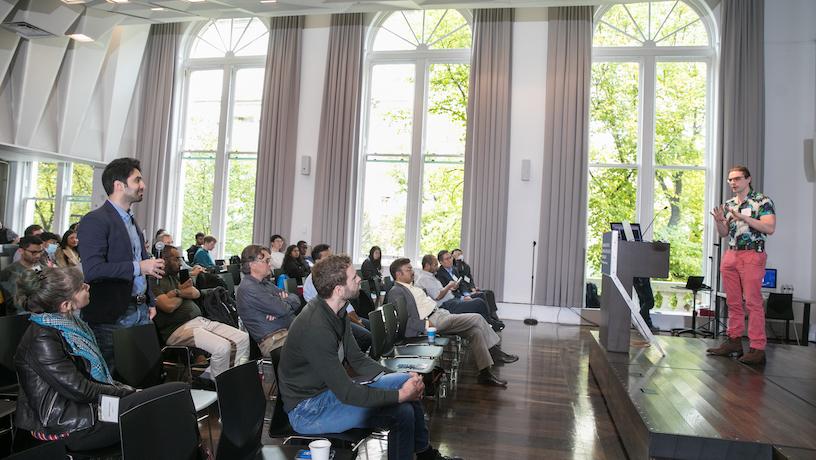When Can We Truly Trust AI?
Columbia Center of Artificial Intelligence Technology's symposium focused on advances and new challenges in the field of AI technology related to autonomy and trust.
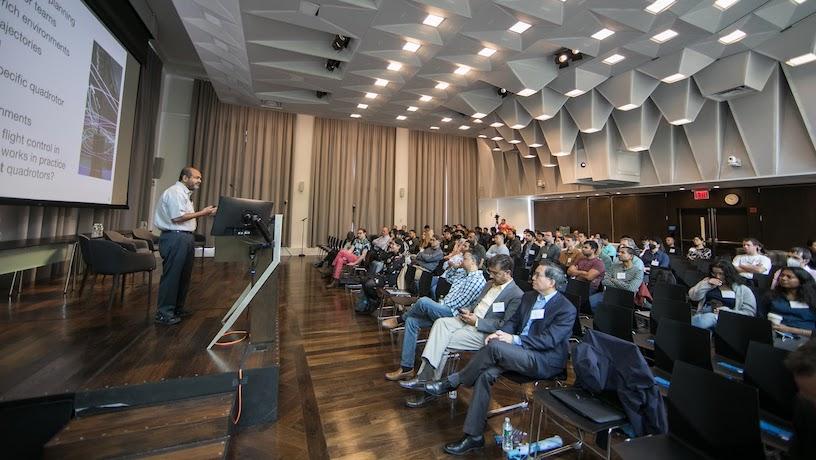
Credit: Timothy Lee
Autonomous systems like self-driving cars, drones, and smart manufacturing robots are becoming common in our everyday lives. These systems pose a big question in artificial intelligence: when will we be able to trust these autonomous systems? With this in mind, the Columbia Center of Artificial Intelligence Technology (CAIT) held its second annual symposium on Monday, October 17, 2022, bringing together scholars and practitioners to start a conversation around autonomy and trust.
"Once again, the Columbia Amazon Center for AI Technologies Symposium featured an incredible group of researchers at the leading edge of their field," said Columbia Engineering Dean Shih-Fu Chang. "We are very grateful to Amazon for this continued partnership that gives us such an extensive platform to explore the most pressing and intriguing questions in AI today."
The symposium lineup highlighted a broad range of projects centered around AI, and included lightning talks from Amazon and Columbia researchers about their work. It has become clear that, as AI penetrates every field of technology, the ability to trust it is becoming an increasingly critical question.
CAIT Excerpt: What is trustworthy AI?
A highlight of the day was a panel discussion with government, industry, and academia experts who explored the different states of AI through the years and talked about the importance of establishing trust in order to gain broader acceptance of AI.
One of the keynote presentations was given by Gaurav Sukhatme, a professor of computer science and electrical and computer engineering at the University of Southern California, who featured his work with small robots. His talk highlighted how drones and large computer systems can be applied to work on small autonomous robots. While his work on autonomous robots in the lab doesn't really have trust issues, he noted that, "once it is out of the lab, that is when society becomes skeptical of the technology, which is good. People need to be skeptical."
Jacob Devlin, a research scientist from Google well known for developing the BERT model for language understanding, also gave a keynote talk. He provided a nuanced literature review of recently published papers on large language models, and pointed out parts of the papers that were "under-specified but useful to research." Said Devlin, "To me, they were obvious in retrospect; it made me think, ‘why didn't I think of that until I read it in this paper?’"
Research collaboration is at the heart of CAIT, and the day's closing activity featured round-table discussions among Amazon researchers and Columbia faculty and students. The three groups talked about public data resources, fairness, and privacy with the expectation of starting a conversation about research interests and possible collaborations to pursue after the symposium.
CAIT was formed in 2020 to advance innovation of AI technology and train the next generation of leaders through education. The past two years have resulted in 10 scholars from Amazon, 4 Amazon visiting academics, and 33 PhD students doing internships at Amazon. This past summer, the Columbia-Amazon Summer Undergraduate Research Experience (SURE) program, a research and professional development program, hosted 48 undergraduates to give them their first exposure to a tier-one research university.
CAIT has also opened the door for impactful research collaborations. For example, the NYC Pandemic Research Institute was founded in May of 2022 to respond to the next potential pandemic. CAIT leaders foresee that AI will play a central role in organizing humanity's response to and preparedness for the next pandemic.
"The symposium was a perfect kickoff for the third year of the Columbia-Amazon partnership," said Prem Natarajan, vice president of Alexa AI. "We are excited to see how this collaboration will advance AI and foster the next generation of AI researchers."
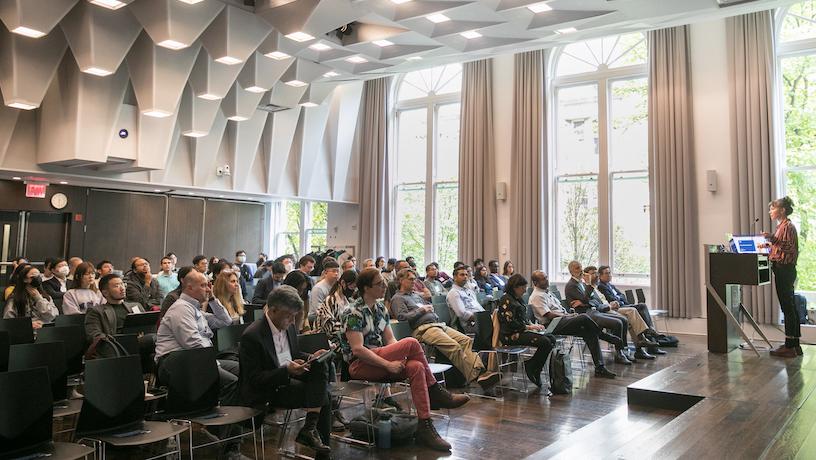
Credit: Timothy Lee
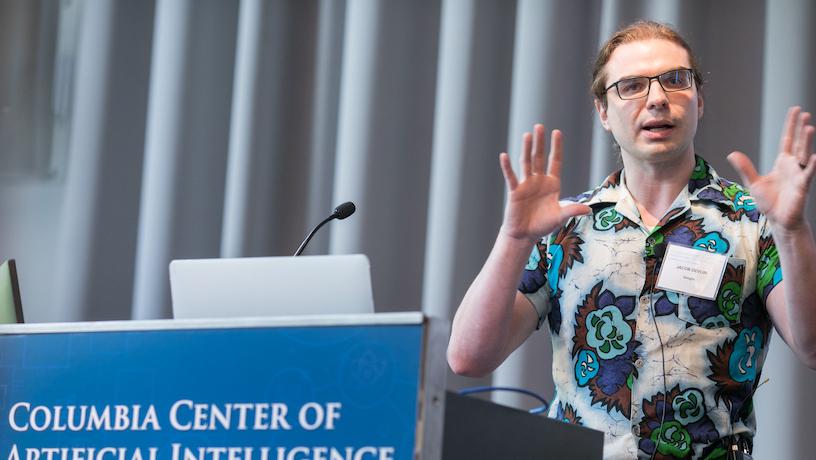
Credit: Timothy Lee
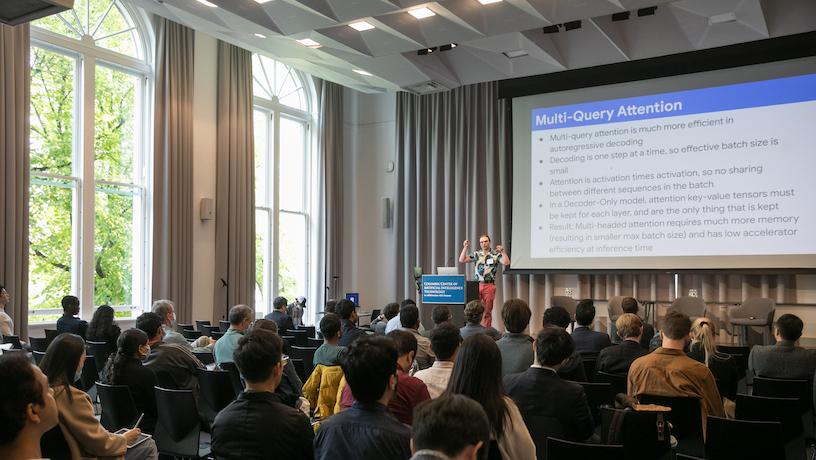
Credit: Timothy Lee
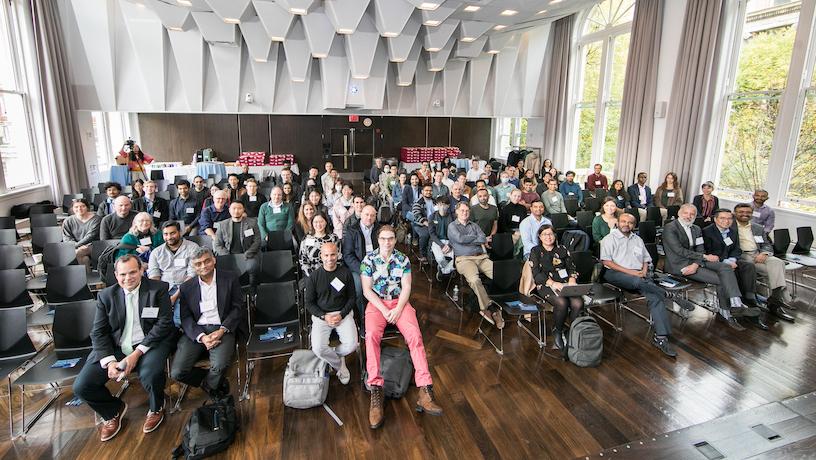
Credit: Timothy Lee
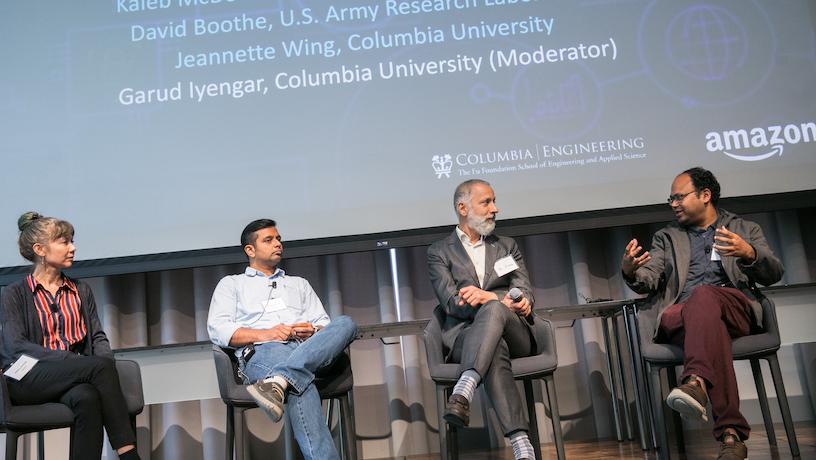
Credit: Timothy Lee
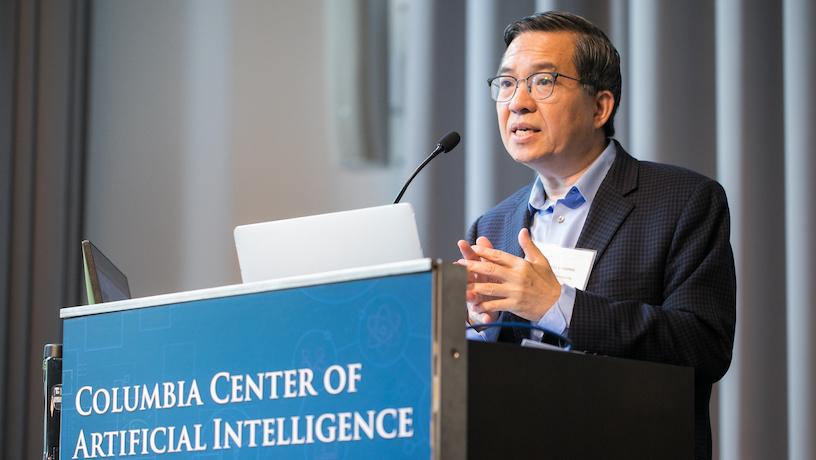
Credit: Timothy Lee
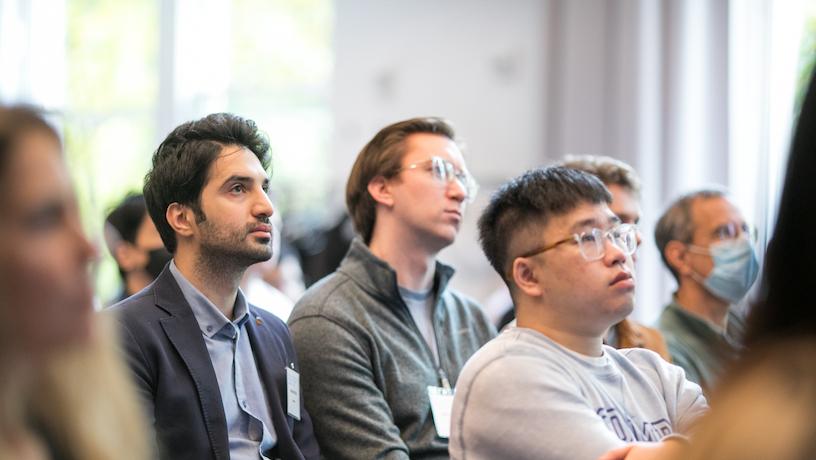
Credit: Timothy Lee
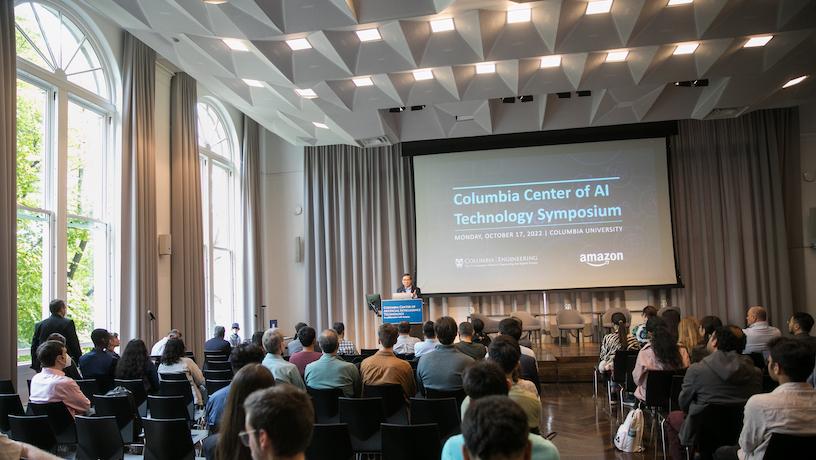
Credit: Timothy Lee
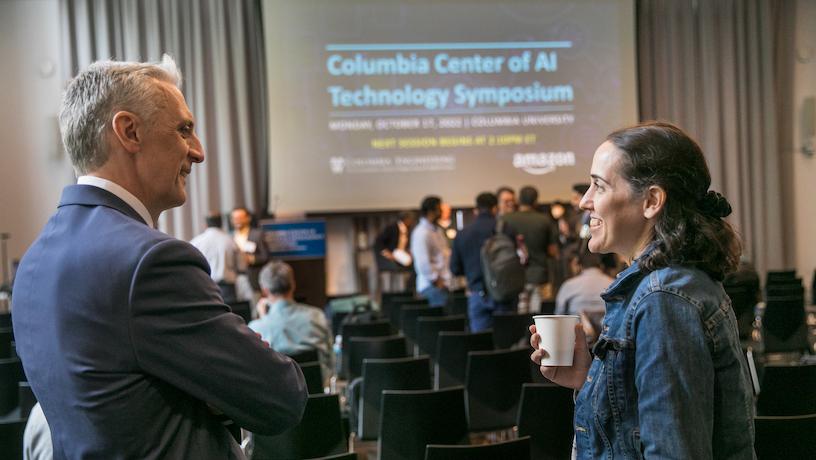
Credit: Timothy Lee
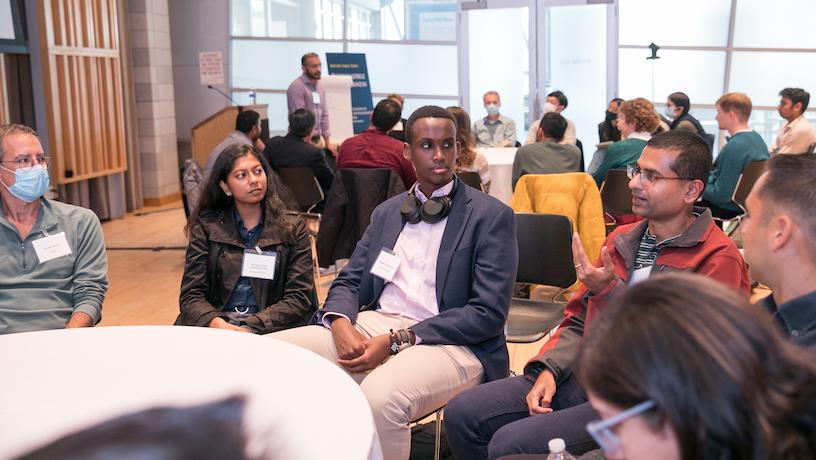
Credit: Timothy Lee
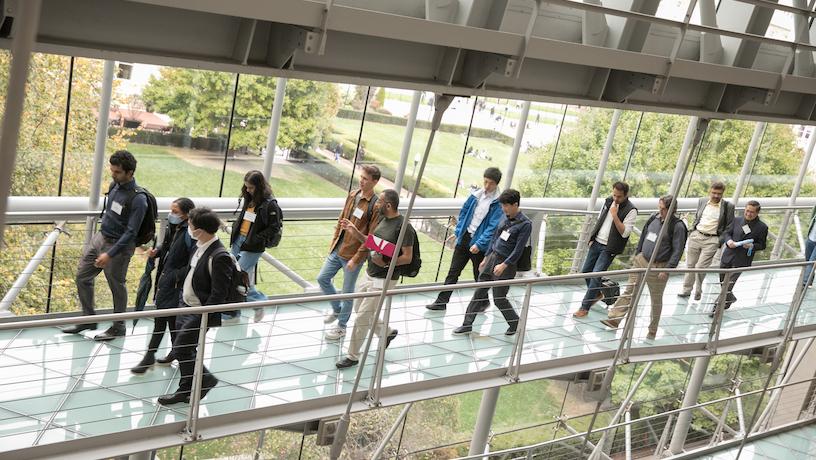
Credit: Timothy Lee
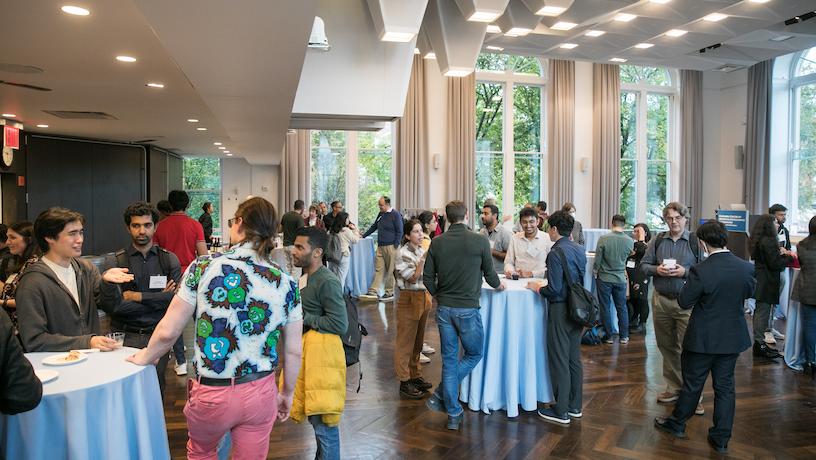
Credit: Timothy Lee
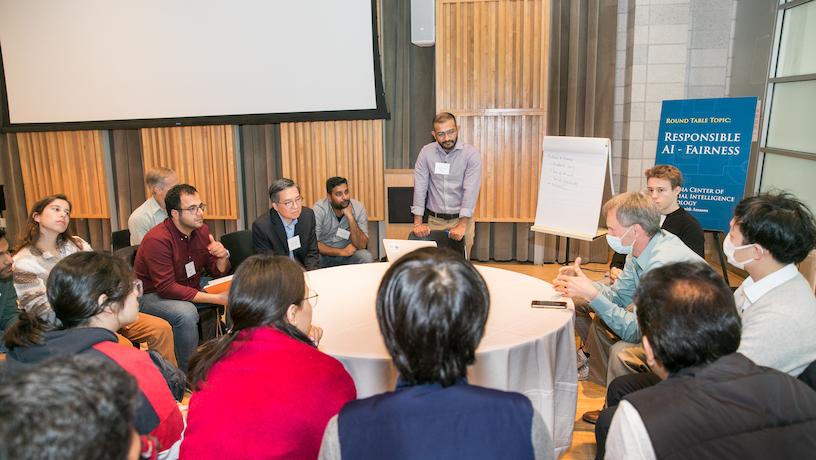
Credit: Timothy Lee
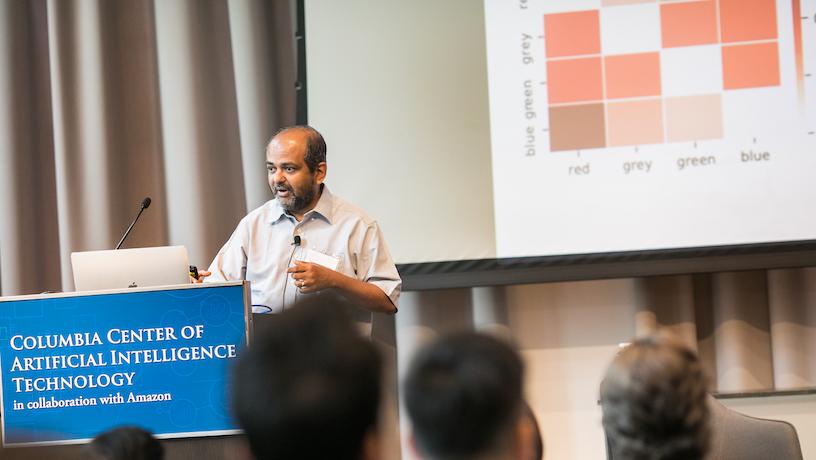
Credit: Timothy Lee
